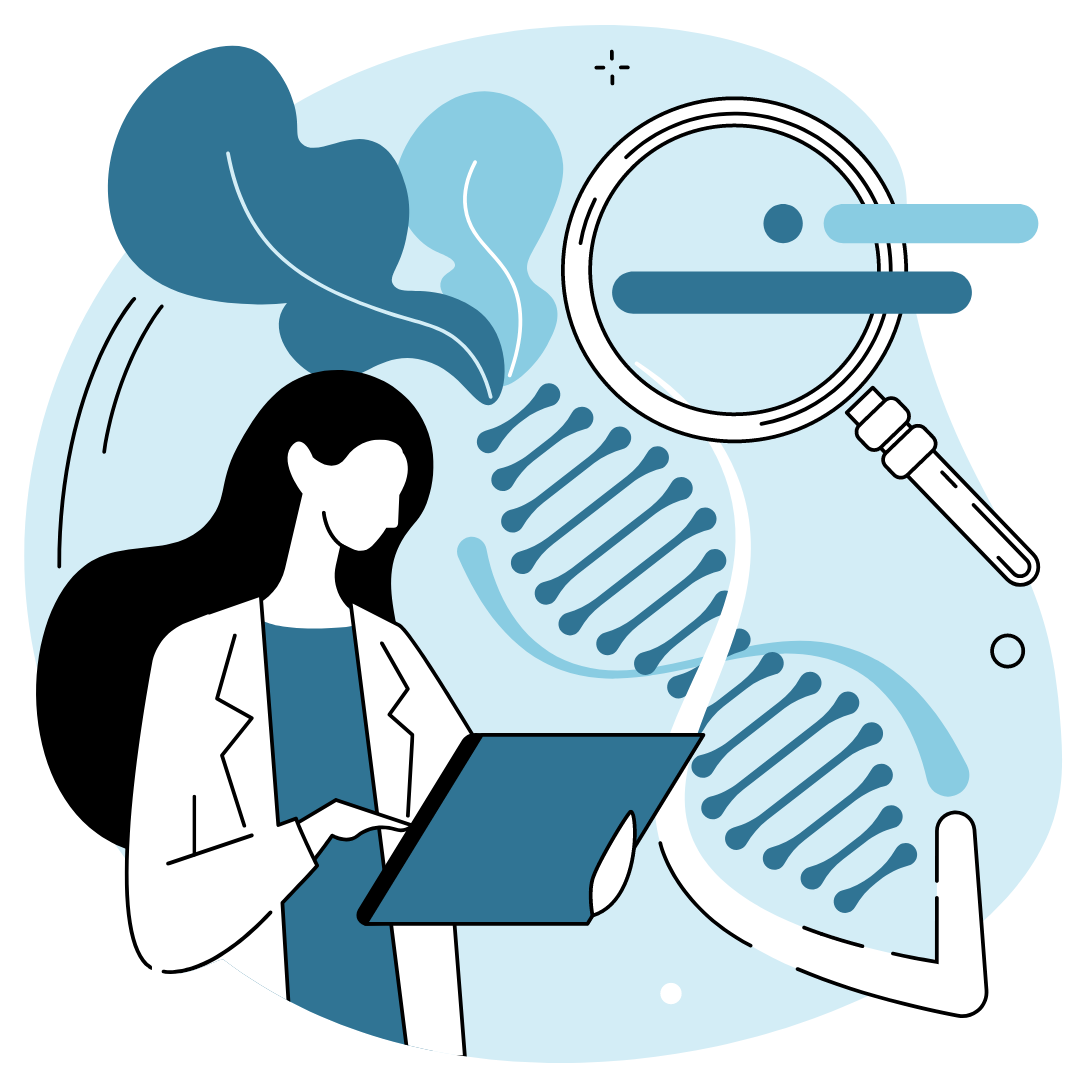Exciting announcement!
Preventous will now be offering a Nutrigenomics genetic testing service! This article will explore the science behind nutrigenomics, answer some common questions and how you can have your own nutrigenomics test done with Preventous.
What is Nutrigenomics
Nutrigenomics is the study of genetics and nutrition. It combines personalized genetic analysis with research on genes known to have a role in nutrition and health. It can be used as a risk assessment tool to guide nutrition recommendations and strategies.
The company we are working with, Nutrigenomix™, is based out of the University of Toronto. We chose this company because it applies a rigorous evidence-based approach, has effective safeguards for data privacy, and they require the data to be interpreted together with a trained healthcare practitioner.
The report recommendations are based on the most current evidence-based scientific research that has been published in peer-reviewed journals and reviewed by the Nutrigenomix™ team of world-renowned experts in the field of nutrigenomics.
Preventous dietitians Daniel Neuman and Britney Lentz have been trained to analyze and interpret Nutrigenomic data to enhance the personalization of our nutrition recommendations, particularly from a disease prevention perspective.
How does the test work?
The test requires a sample of your saliva which we can obtain in our clinic. The test then goes to the company for DNA sequencing of 70+ nutrition-related genes. After about 2-4 weeks, we receive a comprehensive report inclusive of the following nutrition areas:
- Nutrient metabolism
- Food intolerances and sensitivities
- Cardiometabolic health
- Weight management and body composition
- Eating habits
- Exercise physiology
- Fitness and injury risk
- Nutrition and skin health (optional add-on analysis)
When we receive your results, the Preventous dietitian will perform a detailed analysis and provide personalized recommendations that take into account your current lifestyle and medical history. These results are presented, along with the full Nutrigenomix™ report, which contains dietary recommendations for each gene analyzed, and a list of food sources. This becomes an excellent tool to guide nutrition education and meal planning.
What kind of nutrition genes will be analyzed?
Over 70 genes with known relationships to nutrition and health are analyzed in the test.
For example, did you know approximately 50% of the population has a genetic predisposition to being a “slow metabolizer” of caffeine?
This is important because research shows that people who carry the risk variant and consume more than 200mg of caffeine per day (i.e., greater than 2 cups of coffee, approximately), have a significantly higher risk of adverse cardiac events. Furthermore, with high blood pressure, there comes a much higher risk of developing kidney disease.
But coffee is also the number one source of antioxidants in the North American diet!
If you have a genetic predisposition to slow caffeine metabolism, your dietitian can help you create strategies to ensure you still optimize antioxidant-rich foods and beverages while limiting caffeine.
There are many other examples that can be reviewed together with the dietitian and an example report.
Can Nutrigenomix diagnose a medical condition?
No, it cannot. Our health is a result of genetics and our environment (i.e., lifestyle) such as activity, sleep, stress, and nutrition. Nutrigenomix is a risk assessment toolthat looks at genetics specifically. It cannot be used to diagnose or treat a medical condition.
However, it gives us valuable information on potential genetic predispositions towards specific medical conditions with a nutrition component, such as heart disease, bone health, weight management, blood sugar management, and more. Also, research shows that when we know we have a genetic predisposition, we are more likely to take action and be motivated to make diet or lifestyle changes.
The Genetics of Nutrigenomics (for interest)
Genes are composed of nucleotides, and you have four. They are abbreviated as A, T, G, and C. Your genes are a unique sequence of these nucleotides. For example, the gene that codes for the enzyme that breaks down caffeine is a unique combination of nucleotides.
Nutrigenomics identifies small genetic differences between individuals – something known as SNP (Single nucleotide polymorphisms). In other words, at one single point in a gene, one nucleotide is different between individuals. These are the result of genetic mutations, that can be either favourable, unfavourable or have no observable effect.
Contextual interpretation of this data by a qualified practitioner is critical to understanding its significance to your overall health.
Working together
Prior to becoming a dietitian, I completed graduate studies in evolutionary immunology, genetics, and medical research. At that time, most personalized genetics was not accessible to the public. It is very exciting to see Nutrigenomics now become an accessible, evidence-based, risk assessment tool.
If disease prevention is a goal of yours – Nutrigenomix can help refine your nutrition strategy. And while genetics is a non-modifiable risk factor, there are many modifiable risks we can address through diet and lifestyle. Working together with a Registered Dietitian is a great place to start. Please speak with one of the Preventous dietitians if you are interested to learn more or get your own nutrigenomics test done!
Daniel Neumann
Registered Dietitian

